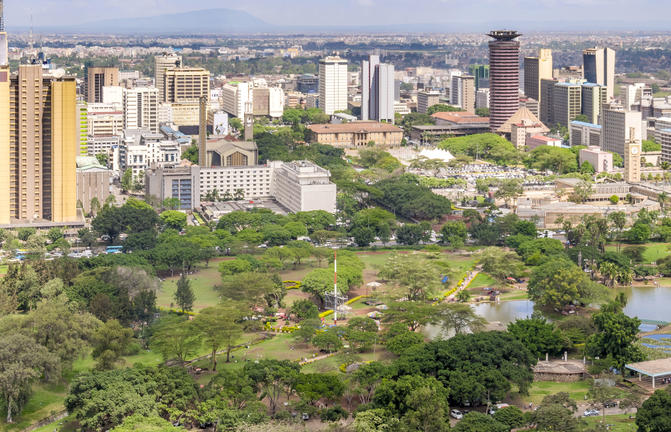
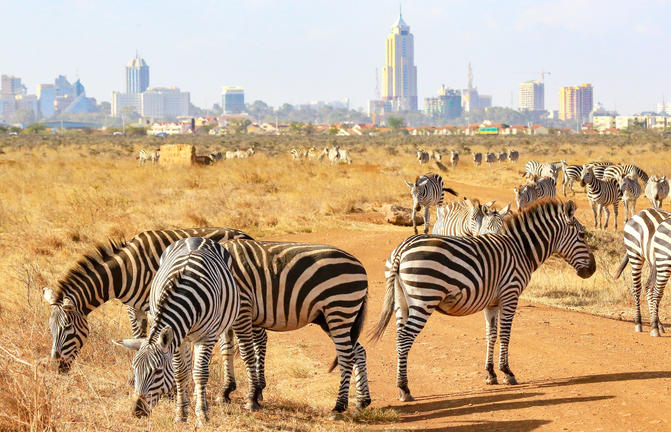

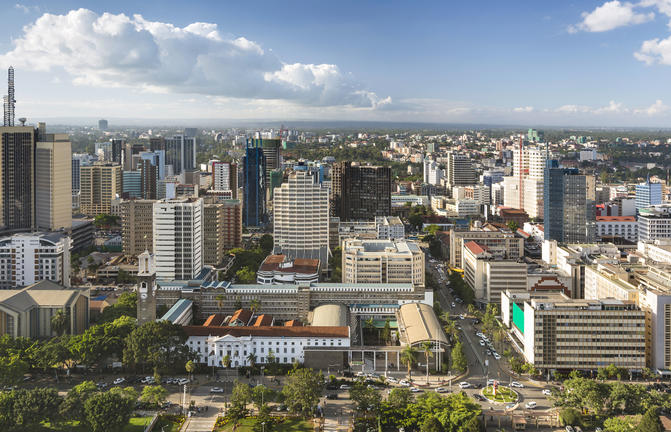
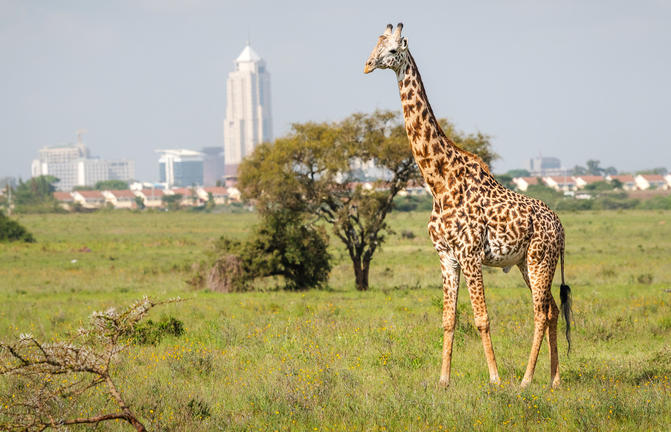
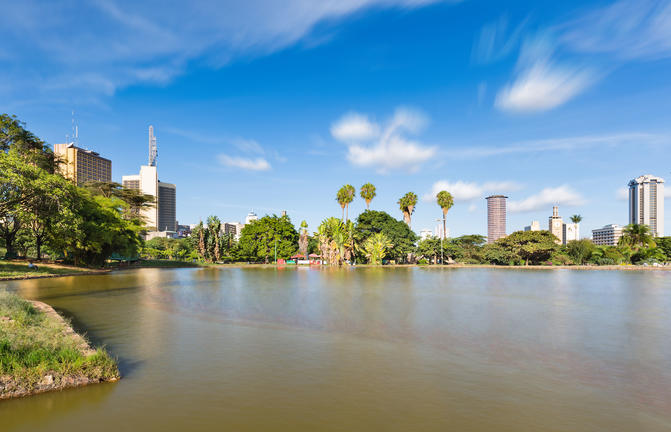

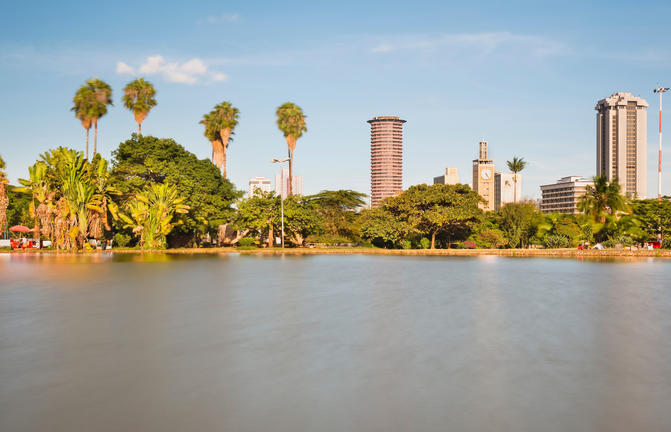
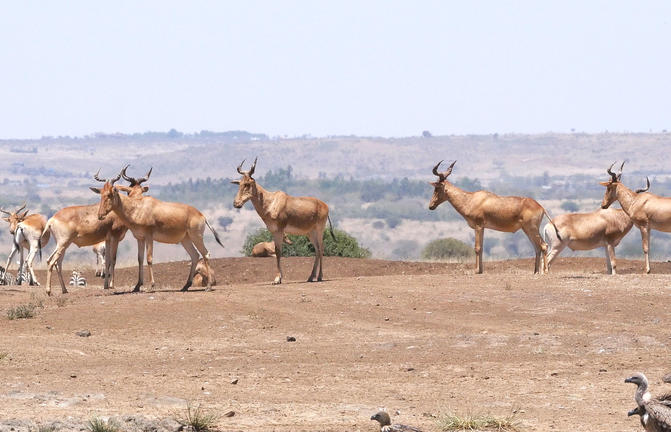
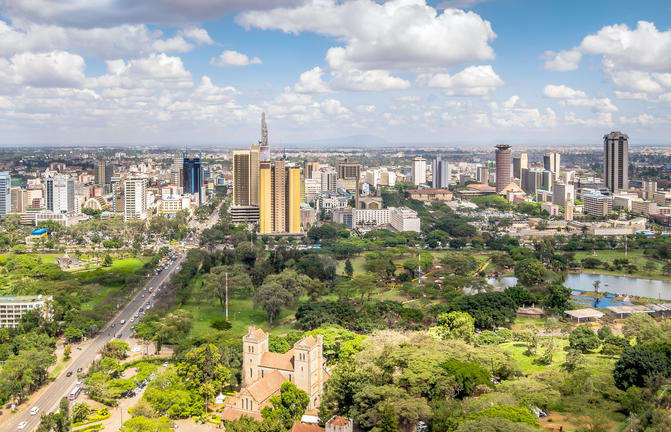
Founded in 1899 as a rail depot for the Uganda Railway, Nairobi has grown to become one of the most prominent, thriving capital cities on the continent.
The world’s only capital city with a national park, Nairobi is a vibrant combination of modern life, African culture and nature. Skyscrapers, banks, malls, international hotels and businesses are prominent throughout Nairobi. Close to Nairobi National Park, the suburbs of Langata and Karen have maintained the traditional Nairobi charm with tall mature trees and vast gardens.
The original safari capital of Africa, Nairobi offers world class accommodation from intimate boutique hotels in tranquil gardens to 5 star luxury international hotel chains. Whether you are looking to explore the original home of Karen Blixen, feed giraffe by hand, adopt an orphaned baby elephant, taste ‘Nyama Choma’ or pick up artisan pieces at a local market, Nairobi never sleeps and there’s an adventure opportunity around every corner.
Bordering the Masai Mara National Reserve to the southwest, the Olare Orok Conservancy to the west and the Ol Kinyei Conservancy to the east, the Mara Naboisho Conservancy is comprised of over 50 000 hectares of unspoilt wilderness in Kenya’s Greater Mara Region.
The area is renowned for its bountiful biodiversity and breathtaking natural beauty with a wide range of wildlife on offer including lion, cheetah, elephant, giraffe, wild dog, and a host of plains game. Visitors can look forward to guided walking safaris, spending the night in a transient fly camp, heading out on a night game drive in search of elusive nocturnal creatures, joining the Mara Naboisho Lion Project as they track lions across the conservancy, or visiting Maasai villages to learn about this fascinating indigenous culture.









Located north of Mombasa, the small coastal village of Watamu is renowned for the Watamu Marine National Park. The park boasts three sparkling bays, white-sand beaches and an underwater coral wonderland offering one of the best snorkelling and diving experiences on the East African coast.
This charming village is surrounded by an abundance of natural beauty; fringed by lush tropical rainforests and mangroves. Visitors flock here to spend lazy days on the beautiful Watamu and Turtle Bay beaches, explore the Gede Ruins, and fish in the mangrove-edged waterways of Mida Creek. Don't the miss the opportunity to visit the nearby Arabuko Sokoke Forest Reserve to spot monkeys, elephants and a variety of rare bird species.




